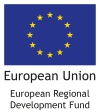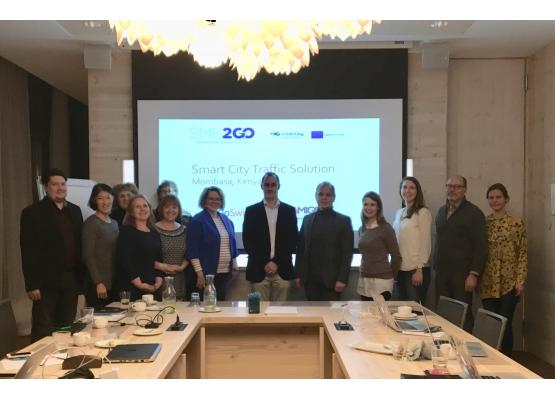In English
- The results we are now seeing come as an outcome of what we have learnt together during the project. We have focused on building competitive consortia of supplementing SMEs, targeting valid business leads in new markets. And this has paid off, said Ulf Borbos, project manager of SME2GO.
The Interreg Central Baltic project SME2GO engage with clusters of SMEs to facilitate export and reach new markets outside the EU. The common denominator is Smart City solutions, which includes green tech and sustainability related products and services. Most of the participating SMEs are profiled companies in energy efficiency, recycling, air quality and IT-based solutions.
In two separate business contracts supported by SME2GO, the ReachU consortia and GoSwift consortia with Finnish, Latvian and Estonian SMEs have now secured deals of total worth €12-14 million. In Vietnam, Reach-U will supply their product U-Base, a turnkey solution to access precise and up-to date geographical data services, which forms the foundation for Smart City initiatives. GoSwift will supply the city of Nairobi, Kenya, with electronical queue management solutions to handle bottlenecks and improve traffic flow and efficiency.
An additional four potential deals in China, Mexico, USA, Kenya, Botswana and Namibia including Finnish, Swedish and Estonian companies are now in their final stages. The goal to secure a minimum of three business deals before the project ends this fall. Most likely this number will be exceeded.
- Through this project, partners can draw on different competences and expertise. This makes their offer much more competitive. In the Central Baltic area, we are forced to make cross-border cooperation work as all countries have small markets and limited number of companies competitive on a global market, said Ulf Borbos.
Initially SME2GO had a stock of almost 200 companies interested in the project. Companies were selected by validation of business offer and potential, and prioritisation based on market analysis, matching business prospects, competences and potential business deals. In total 20 participating companies were the selection.
Through the project, participating SMEs have received networking assistance, international marketing and sales training, matchmaking and market intelligence support. SME2GO has mainly worked together with the SMEs to establish competitive consortia consisting of several small sized companies. In some cases, SME2GO has also been able to establish joint bids in association with a larger corporation, where SMEs with specific expertise provide the added value to the offer.
Even though the SME2GO project will end by September 2018, the cross-border cooperation will continue. Discussions about new joint projects are already on their way. The potential for SME export is still mainly untapped and SMEs are largely unable to access these new markets on their own. The project partners see deeper cooperation as essential for the SMEs to reach markets outside the EU.
- The SME2GO project partners have complementing skills and networks. For example, Estonia has experience of working with countries that Finland and Sweden have not and vice versa. This opens the door to new business potential and provide new networks for companies. It gives us more openings and opportunity, and that is real value, said Ulf Borbos.



